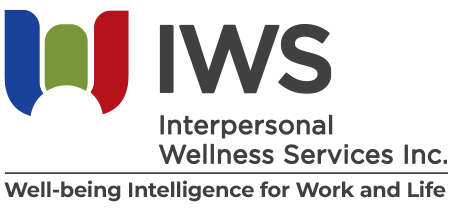Welcome to our guide on recognizing triggers to prevent conflicts in your team and reduce workplace stress and frustrations. At Interpersonal Wellness Services Inc., we understand the importance of fostering a supportive and harmonious work environment. By proactively identifying triggers of conflicts, individuals and teams can effectively mitigate tensions, promote psychological safety, and enhance overall well-being.
The occurrence of conflict at work or in a team can often be unexpected, disrupting productivity and ruining relationships. Many conflicts result from triggers that, if recognized early, can be managed, or even prevented.
Understanding and anticipating triggers is more than just a skill; it can be a powerful tool to foster a harmonious and collaborative work environment. Here are some tips to prevent conflicts at work and help you recognize triggers:

Communication Breakdowns:
In the workplace, communication breakdowns are a common cause of conflict. Whether it's misinterpreted emails or unclear expectations, these breakdowns can quickly escalate tensions. Recognizing signs of miscommunication, such as confusion or frustration among team members, empowers individuals to intervene early, resolve conflicts, and clarify information. This is the most cost-effective way to resolve conflicts at work.
Unresolved Issues:
Are there people holding grudges and not letting go of the past at work? Lingering tensions and unresolved grievances can create a toxic atmosphere within teams. These issues often stem from past conflicts or unmet expectations. By recognizing signs of unresolved issues, such as passive-aggressive behaviour or avoidance, individuals can address underlying concerns proactively to prevent conflicts from erupting.
Personality Clashes:
Do you feel like you have nothing in common with a team member? Diverse personalities or work styles can lead to interpersonal conflicts within teams. Recognizing the causes of these clashes, such as mismatched communication styles or conflicting goals, enables individuals to navigate these dynamics effectively. By promoting empathy and understanding, teams can prevent conflicts stemming from personality differences.
Stress and Pressure:
Workplaces get busy and this can take a toll on employees’ interaction. High-pressure environments and heavy workloads can exacerbate tensions and trigger conflicts among team members. Recognizing signs of stress, such as irritability or withdrawal, enables leaders to implement strategies for stress management. Encouraging open dialogue and fostering a healthy work-life balance are essential for alleviating the pressures that fuel conflicts. Get help identifying some stress management tips to help you cope.

Perceived Inequities:
Perceptions of unfair treatment or unequal opportunities can breed resentment within teams. Recognizing triggers of perceived inequities, such as disparities in workload distribution or lack of recognition, prompts leaders to address issues of fairness proactively. By promoting equity and inclusivity, organizations can mitigate the risk of conflicts arising from perceived injustices. Failure to address these can create resentment and lead to poor mental health at work.
Cultural Differences:
Cultural differences can contribute to misunderstandings and conflicts. Recognizing triggers of cultural clashes, such as language barriers or differing expectations, norms and values, encourages individuals to embrace diversity and cultivate intercultural competence. By fostering cross-cultural understanding, teams can prevent conflicts and promote collaboration across diverse backgrounds.
Ego and Power Dynamics:
Ego clashes and power struggles can undermine trust and collaboration within teams. Recognizing triggers of ego-driven conflicts, such as territorial behavior or resistance to feedback, prompts leaders to foster a culture of humility and empowerment. By promoting psychological safety, organizations can mitigate conflicts driven by ego and power dynamics.
You can reduce workplace stress and frustrations while fostering a supportive and harmonious work environment, where proactive steps are taken to reduce triggers and other signs of conflicts on teams.
To Your Wellness,
Joyce
Things to Ponder:
What are your triggers and how will you address them?
Action Steps:
Pay attention to your triggers to reduce conflicts and tension.

